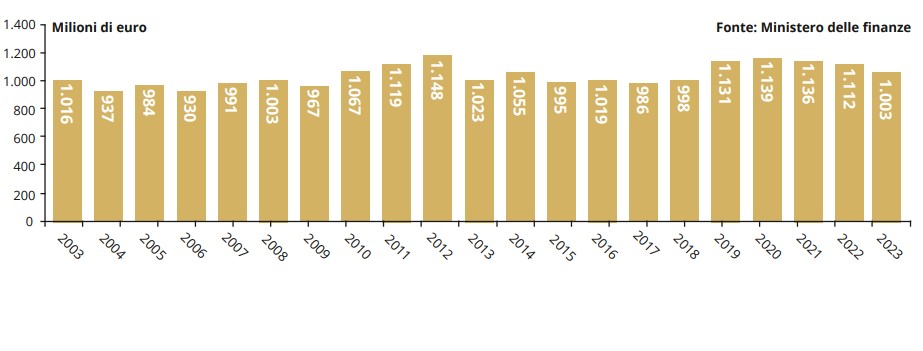Auto, 2.8 billion from EU floor: the push to the electric with purchase incentives (European and national)

The European Union has presented the new plan: expected actions to make the company fleets more ecological which represent about 60% of the new cars enrollments
« I want to announce that, since we do not have time to waste, the revision of the law on carbon dioxide emissions will take place in the third and fourth quarter of 2025, instead of in 2026 ». The European Commissioner for Transport, Apostolos Tzitzikostasthe 2.8 billion euro European action plan for the automotive industry (1.8 billion to support the development of a safe and competitive supply chain for the battery raw materials and the remaining billion euros assigned to connected and autonomous and autonomous batteries) presented. The plan, said the commissioner, has « concrete actions aimed at guaranteeing a solid and at the same time sustainable automotive sector« (Focus on clean mobility, digitization and resilience of the supply chain), and capable of contributing » to freeing its innovative power « . The final goal is to make the EU car industry of the world leader in innovation and clean solutions, creating a better future for citizens, the economy and the environment.
Commission: « Ok flexibility on CO2 standards for cars and vans »
Purchase incentives, both national and European, social leasing and electrification of the company fleets: these are the racing measures that Brussels promises to put in place in the plan for automotive and thus strengthen the
Question of e-cars. But, in a nutshell, what changes? As regards the objectives of combating nothing pollution, except It extends by three years – « Instead of the current annual compliance », as Ursula von der Leyen explained – the window of time to conform to the new standards of carbon dioxide emissions. From this year the EU has lowered 94 grams per kilometer traveled the maximum limit of the average emissions of the sales of new vehicles. Those who exceed this limit risk incurring savory fines (the sector estimated them in 15-16 billion for 2025). The pressure of the industry then prompted Brussels to propose to calculate in a more flexible way the compliance with the targets, on the average emissions of an automotive manufacturer. In this perspective, «The Commission will propose an amendment aimed at the regulation on CO2 standards for cars and vans»Already this month. «The amendment, if adopted (the proposal must however go to the examination of Parliament and the Member States, editor's note), it will allow car manufacturers to meet their compliance objectives by calculating the average of their services on a period of three years (2025-2027), allowing them to compensate for any deficiencies in one or two years with excess results in the other years, while maintaining the general ambition on the objectives of 2025 « , explains Brussels. Those who hoped in a U -U -march will be disappointed: in fact, the finish line fixed to 2035 for the stop to the new petrol and diesel vehicles remains.
Opening for E-Fuels
At the moment, the plan does not provide for the mobilization of fresh resources but ensures that through the Horizon Europe research program the Uesul E-Fuels side, Brussels meets the requests from Rome, with the promise of Von der Leyen to accelerate the « works on the revision of the regulation », currently scheduled for 2026, to sanction the principle of « full technological neutrality » in the transition of the engines and It should pave once and for all the road to synthetic fuels, e-fuels, in fact, as required by Germany.
Incentives to stimulate the demand for E-CARS
The plan developed by the Greek commissioner Apostolos Tzitzikostas is composed, however, by many other chapters. The Commission is already working on the ways to increase the demand for European vehicles to zero emissions. For this reason, « the action plan includes measures that will provide incentives » coordinated between the Member States to stimulate the demand for e-cats. In 2026, the European Commission promised, a recommendation to tax and non -tax incentives will arrive to support the application. With a recommendation, it will encourage governments to adopt social leasing schemes financed by governments for new or second -hand vehicles for low -income families, mainly exploiting the resources of the future social fund for the climate, a treasure « which between 2026 and 2032 will mobilize 86.7 billion to support the transition.
Corporate cars
The action plan is then completed by the communication on the decordination of corporate cars which highlights examples of good practices and encourages member states to take further actions To make company fleets more ecological (alone represent about 60% of the new cars enrollments). A proposal will arrive within the year to electrify the fleets, on which the EU Commission has presented a non -binding communication today. But the proposal does not like to the Minister of Transport and Infrastructure Matteo Salvini, who with the colleagues of the Czech Republic, Slovakia and Bulgaria sent a letter to Brussels to avoid the introduction of mandatory electric cars.






